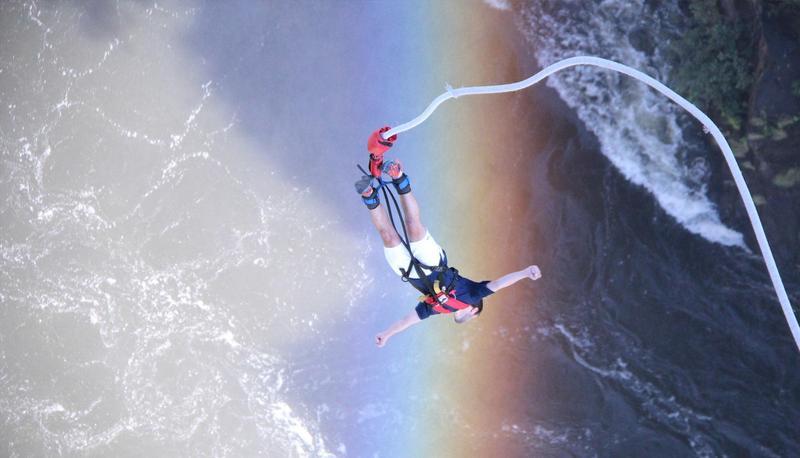Here is Why You Should Spend Your Money On Experiences, Not Things
Here is Why You Should Spend Your Money On Experiences, Not Things
Why do we head for the shops with such determination as soon as we have money in our wallets? With every new purchase we feel a little happier, but a few days later that satisfaction is often gone without a trace.
It turns out that the main impediment to happiness is adaptation. As soon as something we’ve bought becomes ordinary and unexciting, the level of life satisfaction we feel falls, and we’re forced to search around for the next purchase. This process is repeated again and again.
However, research carried out at Cornell University has found a way to break this damaging cycle. Psychology professor Thomas Gilovich has shown that we experience the same increase in happiness when we buy something we want and when we go traveling. But — and here’s the most important point — the amount of happiness we derive from our purchase falls over time, whereas the memories of our traveling experience continue to supply us with happiness hormones for much longer.
Going to various kinds of unusual events, going on trips, learning new skills, even extreme sport — all of these are an ideal source of happiness for each and every one of us. A new device or even a new car will eventually become just another ordinary object we own, or will otherwise become old and outdated. Every new memory, on the other hand, becomes a real source of joy that stays with us for our whole lives.
So rather than buying the latest iPhone or a new BMW, Gilovich suggests you’ll get more happiness spending money on experiences like going to art exhibits, doing outdoor activities, learning a new skill, or traveling.
Gilovich’s findings are the synthesis of psychological studies conducted by him and others into the Easterlin paradox, which found that money buys happiness, but only up to a point. How adaptation affects happiness, for instance, was measured in a study that asked people to self-report their happiness with major material and experiential purchases. Initially, their happiness with those purchases was ranked about the same. But over time, people’s satisfaction with the things they bought went down, whereas their satisfaction with experiences they spent money on went up.
It’s counterintuitive that something like a physical object that you can keep for a long time doesn’t keep you as happy as long as a once-and-done experience does. Ironically, the fact that a material thing is ever present works against it, making it easier to adapt to. It fades into the background and becomes part of the new normal. But while the happiness from material purchases diminishes over time, experiences become an ingrained part of our identity.
“Our experiences are a bigger part of ourselves than our material goods,” says Gilovich. “You can really like your material stuff. You can even think that part of your identity is connected to those things, but nonetheless they remain separate from you. In contrast, your experiences really are part of you. We are the sum total of our experiences.”
One study conducted by Gilovich even showed that if people have an experience they say negatively impacted their happiness, once they have the chance to talk about it, their assessment of that experience goes up. Gilovich attributes this to the fact that something that might have been stressful or scary in the past can become a funny story to tell at a party or be looked back on as an invaluable character-building experience.
Another reason is that shared experiences connect us more to other people than shared consumption. You’re much more likely to feel connected to someone you took a vacation with in Bogotá than someone who also happens to have bought a 4K TV.
“We consume experiences directly with other people,” says Gilovich. “And after they’re gone, they’re part of the stories that we tell to one another.”
And even if someone wasn’t with you when you had a particular experience, you’re much more likely to bond over both having hiked the Appalachian Trail or seeing the same show than you are over both owning Fitbits.
You’re also much less prone to negatively compare your own experiences to someone else’s than you would with material purchases. One study conducted by researchers Ryan Howell and Graham Hill found that it’s easier to feature-compare material goods (how many carats is your ring? how fast is your laptop’s CPU?) than experiences. And since it’s easier to compare, people do so.
“The tendency of keeping up with the Joneses tends to be more pronounced for material goods than for experiential purchases,” says Gilovich. “It certainly bothers us if we’re on a vacation and see people staying in a better hotel or flying first class. But it doesn’t produce as much envy as when we’re outgunned on material goods.”
Gilovich’s research has implications for individuals who want to maximize their happiness return on their financial investments, for employers who want to have a happier workforce, and policy-makers who want to have a happy citizenry.
“By shifting the investments that societies make and the policies they pursue, they can steer large populations to the kinds of experiential pursuits that promote greater happiness,” write Gilovich and his coauthor, Amit Kumar, in their recent article in the academic journal Experimental Social Psychology.
If society takes their research to heart, it should mean not only a shift in how individuals spend their discretionary income, but also place an emphasis on employers giving paid vacation and governments taking care of recreational spaces.
“As a society, shouldn’t we be making experiences easier for people to have?” asks Gilovich.
Be the first to post a message!
